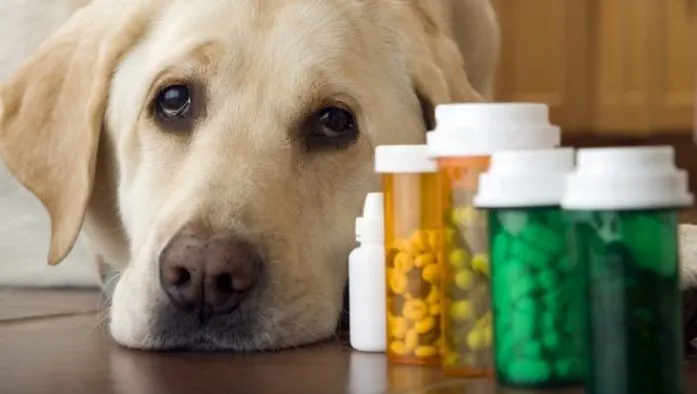Have you ever thought that, if dietary supplements are good for you, they must be good for your dog, too?
Well, that’s true and false at the same time. Before giving supplements to your dog you should consider if they’re something your pet actually needs. Generally, if you’re feeding your dog high-quality food, then they already get the nutrients they need to live a healthy, normal life.
There are, however, a few herbs, and people foods that you can give to your dog without breaking the bank or causing concern that your dog is getting too much of a certain vitamin. Of course, you must discuss these with your veterinarian before making any changes to your dog’s diet.
Three Best Dietary Supplements For Your Dog
Goldenseal For Watery Eyes
We’ve all seen a pup who looks constantly sad with weepy eyes. Did you know that a little herb called goldenseal can help with that?
The herb is a powerful antibiotic that prevents harmful bacteria from hanging onto cell walls. You can use it as a tincture, tea, or wash for dogs with goopy, sad eyes.
Sunflower Oil For A Shiny, Healthy Coat
Along with Omega-3s, Omega-6 Fatty Acids are a crucial ingredient for a healthy pup. Specifically a healthy pup with clear skin and a shiny coat.
Mix a fresh teaspoon of an oil such as sunflower or safflower oil to your small dog’s food, or up to a tablespoon for a larger breed. If your dog is a picky eater, the oil will be a tasty break from the monotony of their regular food.
Probiotics For Upset Stomachs
Probiotics are used to help a dog’s intestinal tract that’s off-track. If your dog is experiencing looser-than-normal stools, consider adding a 2-GI probiotic to their regimen.
Probiotics work by restoring the proper balance of intestinal bugs by introducing healthy bacteria into the dog’s digestive system. Discuss the use of probiotics — and all supplements — with your vet.
These are all great and safe options for your dog, however we repeat, don’t give your dog any unless you get the okay from a veterinarian.

